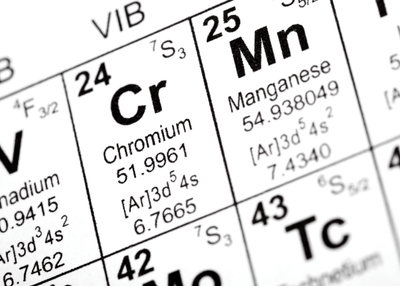Analies Dyjak | Policy Nerd
October 16, 2018: Windham, Ohio issued a “do not drink advisory” for Village Water Plant residents. Manganese was detected at concentrations over the Health Advisory Level. We wanted to discuss what exactly manganese is, potential health effects, and how it enters drinking water.
What Is Manganese?
Manganese is an extremely abundant earth metal. It’s naturally present in the environment, but is also used in iron and steel manufacturing.
Is Manganese Good For You?
In low doses, yes! According to the FDA, it’s important for bone mineralization and metabolic regulation in children. It also helps with cartilage and bone formation. It’s naturally found in foods such as beans, nuts, pineapples, spinach, sweet potatoes and whole grains. You’ve also most likely seen manganese tablets in the supplement isle of the grocery store!
What Are The Negative Health Effects of Manganese In Drinking Water?
Manganese can cause adverse health effects when concentrations exceed the Lifetime Health Advisory Level of 0.3 parts per million. Reports have concluded that chronic ingestion of water containing manganese may lead to neurological effects in older adults and infants. Long term exposure can cause lethargy, muscular weakness. In Windham, EPA set a “do not drink” advisory for infants under 1 year old and nursing and pregnant women. This is in part do to the fact that infants are the most sensitive population to any type of contamination.
What Causes Manganese In Drinking Water?
Clogged water lines typically cause concentrations of manganese to increase, which is what happened earlier this month in Windham, Ohio. Clogs prevent chlorine from entering the distribution system. Chlorine is an oxidant, and is typically used to treat manganese in drinking water. Water utility providers typically use chlorine to treat biological contamination, but it’s also used to reduce the concentrations of iron and manganese in drinking water. Exposure of high concentrations of manganese is possible if treatments (such as chlorine) fail. Private wells are not regulated and therefore not required to meet federally mandated drinking water standards. If you use a private well for drinking water, it’s important to keep this in mind for all types of contamination.
Will Boiling My Water Remove Manganese?
No. Boiling your tap water will not remove manganese, or other metals from drinking water. Boil advisories are typically issued if biological contamination is thought to pose a threat to a drinking water supply. People should always take drinking water advisories seriously, and listen to recommendations from city officials.
Manganese in drinking water is not a huge cause for concern, but it's important to be aware of the potential adverse health effects. It's also important to listen to boil advisories and other information regarding drinking water in your community.
How Do I Test My Home's Water For Lead?
Why Are So Many Schools Testing Positive for Lead?
Why You Need To Stop Using a TDS Meter To Evaluate Your Home's Water Quality?



